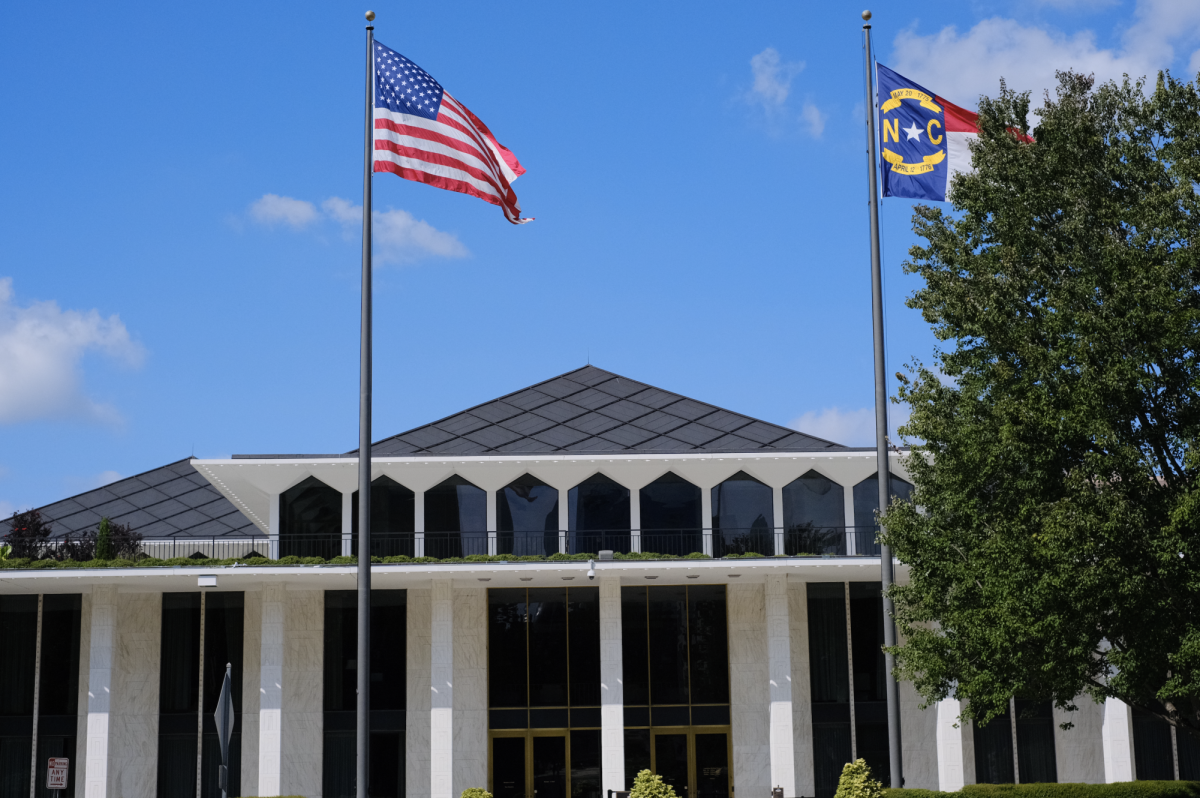The North Carolina General Assembly returned to session this week for the final time in the calendar year. Within a few hours, the Senate successfully overruled the veto 30-19 of outgoing Governor Roy Cooper of the controversial S.B. 382. The state House will vote to override the veto when they come back in session later this week.
What’s in S.B 382
Senate Bill 382, or “Disaster Relief-3/Budget/Various Law Changes,” was largely kept secret — only being made available to lawmakers a few hours before debate and subsequent final vote in late November.
“So I just got access to a 132-page bill I’m voting on today. It’s chock full of power grabs and election administration changes. It has some funds for soil and water assistance but ZERO direct appropriations for hurricane relief. Y’all. This is WILD,” said state House Democrat Lindsey Prather.
The bill originally failed to pass in the state House, with three Western N.C. Republicans breaking ranks to vote against it. Cooper vetoed it, calling it “a sham.”
On Monday, the veto was overridden without debate. Lt. Governor Mark Robinson, who lost his bid for governor by double digits, presided over the session as one of his final acts. Before the vote, he had police clear the gallery.
“Despite the spicy language the governor tried to throw in his little veto message, this is good policy,” Republican Senator Ralph Hines said.
Following the vote on Monday, Cooper criticized the legislature for ignoring communities in Western North Carolina.
“What a disgrace,” he said in a statement.
Despite the legislation’s pretext as an aid package, the bill actually includes no direct aid for counties impacted by the devastating Hurricane Helene. It merely directs the transfer of $227 million from a savings reserve fund to a Helene fund. No part of the bill spends or allocates any of that cash. There are no more votes scheduled in the Senate this year.
What it does include? Sweeping overhauls to the powers of the Governor and Attorney General. The bill would see the balance of power between the states’ executive and legislative branches become even more strained.
Following Democratic victories in council of state races including governor and attorney general, Republicans are attempting to strip some of their power to make appointments. This move is not without historical analog: Republicans took similar measures against Cooper in 2016 and again in 2018.
Structurally, North Carolina already features one of the weakest governorships in the country. The original N.C. constitution (the first of three) gave the governor almost no formal power, placing most of it in the bicameral legislature. Over the state’s history, little has changed. The governor did not get veto power until 1996, for example.
Among the changes, the law would prevent Governor-elect Josh Stein from making appointments to the state board of election. The newly elected Republican Auditor-elect Dave Boliek would now have that authority.
Stein would also no longer be able solely to make appointments to fill vacancies that may arise on the state Supreme Court. He instead will have to choose from a pre-approved list created by the party of the departing judge.
The bill also eliminates two district judge seats in Forsyth County and Wake County. Those judges have a history of ruling against the N.C. GOP in election-related litigation.
The N.C. judiciary, whether district courts or the Supreme Court, is the top prize for both state Republicans and Democrats. The court’s role in gerrymandering and voting law litigation has been consequential in the last decade.
When the bench was occupied by a liberal majority, they frequently were at odds with the legislature, striking down Republican-drawn district maps or Voter ID laws. But the now-conservative majority has been more generous, allowing heavily gerrymandered maps to be used in the 2024 elections.
Given the 2024 congressional maps yielded only one competitive congressional election this cycle, Republicans are in no hurry to mess with the makeup of the high court.
The legislation includes changes to the power of the state’s Attorney General, forcing compliance with the legislature and limiting his autonomy.
AG-elect Jackson would now not take part in suits that would “invalidate any statute enacted by the General Assembly.” The General Assembly deleted provisions from state law that previously allowed the Attorney General to intervene in or originate in proceedings before any courts, regulatory officers, agencies or other bodies across state and federal levels in a representative capacity on behalf of the State.
In practical terms, Jackson would likely be pigeonholed into only being able to pursue legal action on behalf of the state that is ideologically aligned with the interests of the legislature.
The bill also includes changes to the N.C. State Utilities Commission and the N.C. State Highway Patrol.
The House will vote to override the veto later this week. It is unclear whether the three Republican “No’s” from the initial vote will hold to sustain the veto.
Republicans lost their super-majority in November, meaning they will lose their ability to unilaterally override any Governor vetoes come next year.
But the already-crowded legislative agenda didn’t end there.
Amendments
In a flurry of other business on Monday, the Republican majority also proposed a new photo ID constitutional amendment. The new measures would require ID for voting by mail, not just for in-person.
Another amendment proposes lowering the income tax cap from 7% to 5%.
The N.C. Senate also passed a joint resolution calling for a constitutional convention of states to propose amending the U.S. Constitution to mandate congressional term limits. The state House passed the same resolution in March 2023.
House Speaker Tim Moore said the amendment would make elections more “competitive.”
Moore was drawn into a safe republican district in the 2024 congressional maps by his colleagues. He will be joining the U.S. House of Representatives in January.
If approved, these amendments would be sent to voters on the 2026 election ballot.











